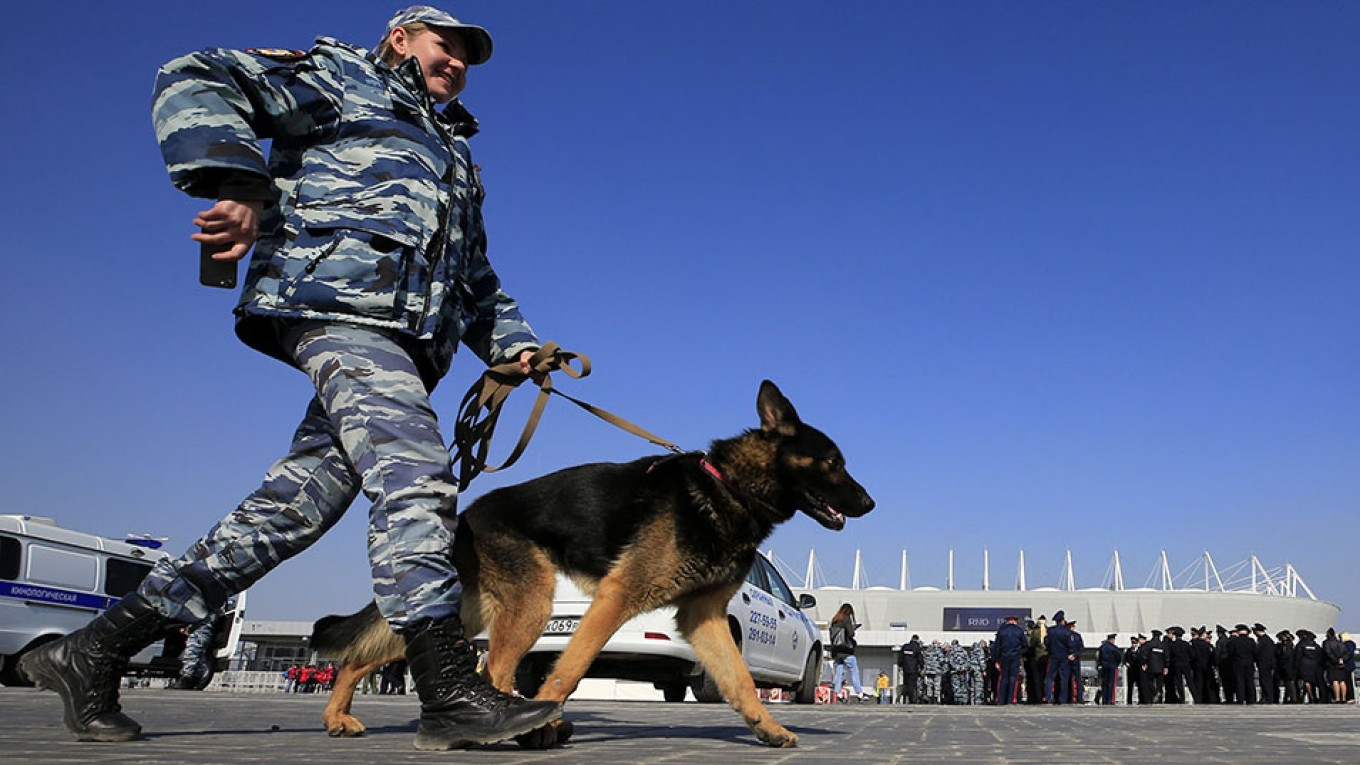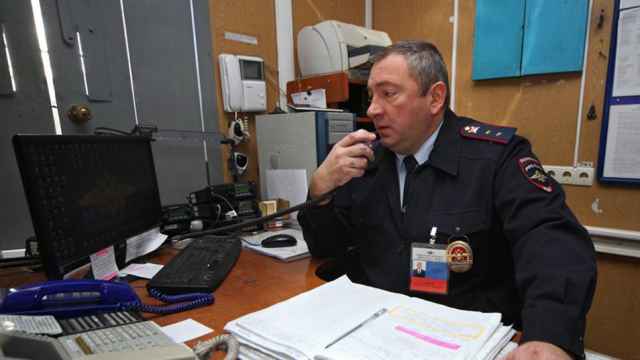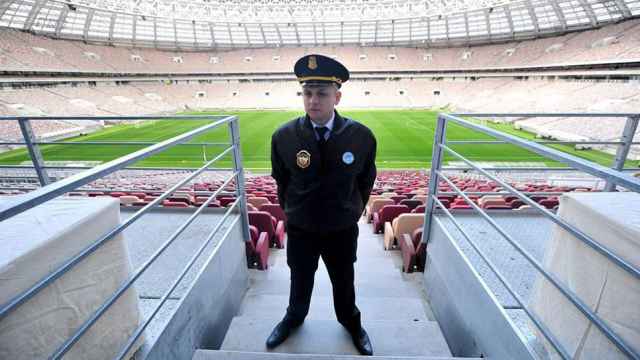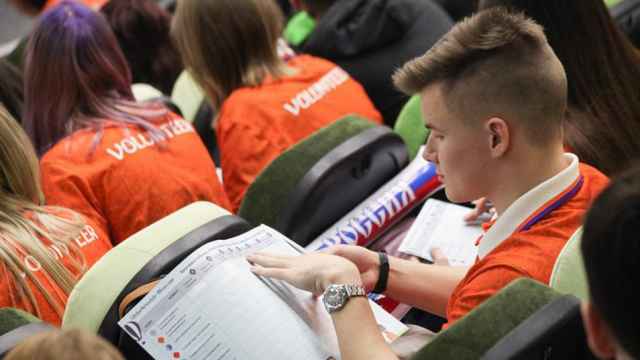Russian police said early on Wednesday they had received multiple bomb threats in the World Cup host city of Rostov-on-Don, causing bars and restaurants to be evacuated across the city.
"On June 26, police received a series of phone calls about explosives planted at locations in Rostov-on-Don," local police said in a statement.
"Police forces made all the necessary checks and no dangerous objects were found," the statement said. "Currently, all the venues are operating normally."
Increasingly isolated on the global stage, Russia is keen to use the World Cup to project an image of stability and strength. Authorities have vowed to host a safe event and any security incidents involving fans could jeopardize Moscow's efforts.
A policeman at the Topos Congress-Hotel in Rostov-on-Don, which was evacuated at around 8 p.m. on Tuesday, said 16 venues had been evacuated across the city as part of a drill.
On the other side of the city, a manager at the Luciano Italian restaurant said staff had been told to evacuate the building for around two hours after receiving a bomb threat.
"There was a phone call, an anonymous phone call, they said there was a bomb in the building," said the manager, who declined to give their name because they were not authorized to speak to the media.
A spokesman for football's world governing body FIFA was not immediately available for comment.
The Russian city of Rostov-on-Don, some 955 kilometers (593 miles) south of Moscow, has so far hosted four matches in the World Cup, including Croatia's 2-1 win over Iceland earlier on Tuesday. The next scheduled match at the venue is on Monday.
The city is just a short distance from Russia's border with eastern Ukraine, where rebels backed by Moscow have been fighting Ukrainian troops since 2014, and its close proximity to the conflict had caused security concerns ahead of the tournament.
The Topos Congress-Hotel is listed as an official World Cup hotel by FIFA, but none of the competing teams are staying there, according to official documents.
Police at the scene said the hotel had been evacuated due to a bomb threat and sniffer dogs were seen entering the building, a Reuters witness said.
Security services were seen questioning people on the street outside the hotel, next to emergency vehicles and a crowd of around 60 evacuated guests who had not yet been allowed back into the building.
Russia was subject to a wave of hoax bomb threats last summer, causing disruption at businesses and public buildings in towns and cities across the country.
The Russian Federal Security Service said in October it had identified four Russian citizens behind the hoax campaign, who were living abroad and using internet phone services to call in the threats anonymously.
A Message from The Moscow Times:
Dear readers,
We are facing unprecedented challenges. Russia's Prosecutor General's Office has designated The Moscow Times as an "undesirable" organization, criminalizing our work and putting our staff at risk of prosecution. This follows our earlier unjust labeling as a "foreign agent."
These actions are direct attempts to silence independent journalism in Russia. The authorities claim our work "discredits the decisions of the Russian leadership." We see things differently: we strive to provide accurate, unbiased reporting on Russia.
We, the journalists of The Moscow Times, refuse to be silenced. But to continue our work, we need your help.
Your support, no matter how small, makes a world of difference. If you can, please support us monthly starting from just $2. It's quick to set up, and every contribution makes a significant impact.
By supporting The Moscow Times, you're defending open, independent journalism in the face of repression. Thank you for standing with us.
Remind me later.






